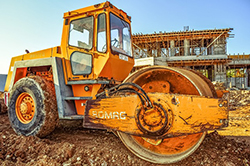 Any construction project is multi-faceted and usually requires a variety of workers, equipment and skills. Construction bonds help to ensure the project is finished properly. Know the different types of construction bonds before you start your next project.
Any construction project is multi-faceted and usually requires a variety of workers, equipment and skills. Construction bonds help to ensure the project is finished properly. Know the different types of construction bonds before you start your next project.
What are Construction Bonds?
Construction projects of a certain size, type and duration as well as most government and public works projects require construction bonds. Contractors purchase bonds from a surety company. The cost of the bonds depends on the project’s risk and the type and amount of bond required.
You may sometimes hear the term “contract bond” used interchangeably with the term “construction bond.” A contract bond guarantees the fulfillment of a project contract. While contract bonds can be used in any industry, they’re most common in construction.
Different Types of Construction Bonds
There are several different types of construction bonds.
Bid Bonds
Contractors typically submit bids on projects. Bid bonds ensure the contractors have the funds and financial credentials to accept and complete the job if their bid is accepted. It can also allow the developer to recoup certain costs if the highest bidder retracts the bid or declines the job.
Supply Bonds
Contractors rely on materials, equipment and other supplies when working on a construction project. Supply bonds reimburse the purchaser if the suppliers do not provide the items as listed on the purchase order.
Maintenance Bonds
Upon completion of a project, the owner expects the workmanship and materials to last for a specified time. Maintenance bonds cover any necessary repairs if there’s a defect.
Performance Bonds
After a contractor is awarded the project, performance bonds ensure the contract is fulfilled properly. If it’s not, the project developer can file a claim against the performance bond and use those funds to pay a second contractor to finish the job. Performance bonds are usually purchased for federally funded projects that exceed $100,000.
Payment Bonds
Unfortunately, a lead contractor may go into bankruptcy during a project and be unable to pay subcontractors, suppliers or other workers. Payment bonds cover those services. These bonds are often issued alongside performance bonds because they’re also required for federally funded projects that exceed $100,000.
Subdivision Bonds
Contractors who build or renovate structures within a subdivision will need subdivision bonds. They ensure the sidewalks, waste management systems, streets and other public structures are built according to specification. Otherwise, the bond will pay for the project to be finished properly.
Site Improvement Bonds
Renovation projects to existing properties or older structures are fulfilling but can be challenging. Site improvement bonds ensure these projects are completed properly.
Construction bonds are essential for many projects. Discuss your needs with your insurance agent as you ensure you’re covered with the right bonds for your needs.





